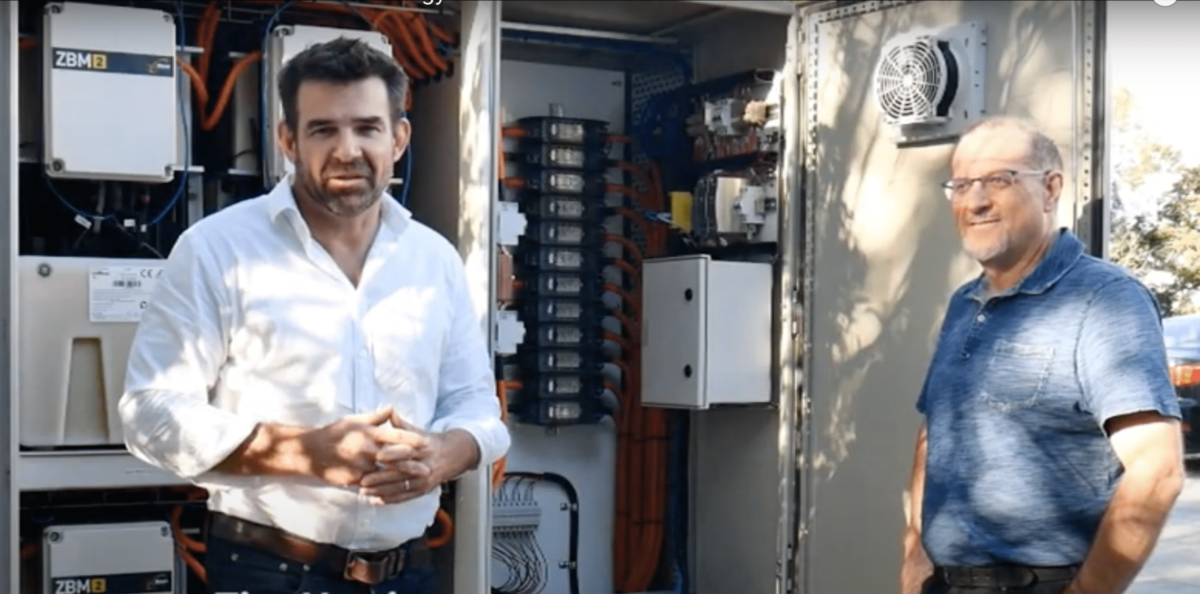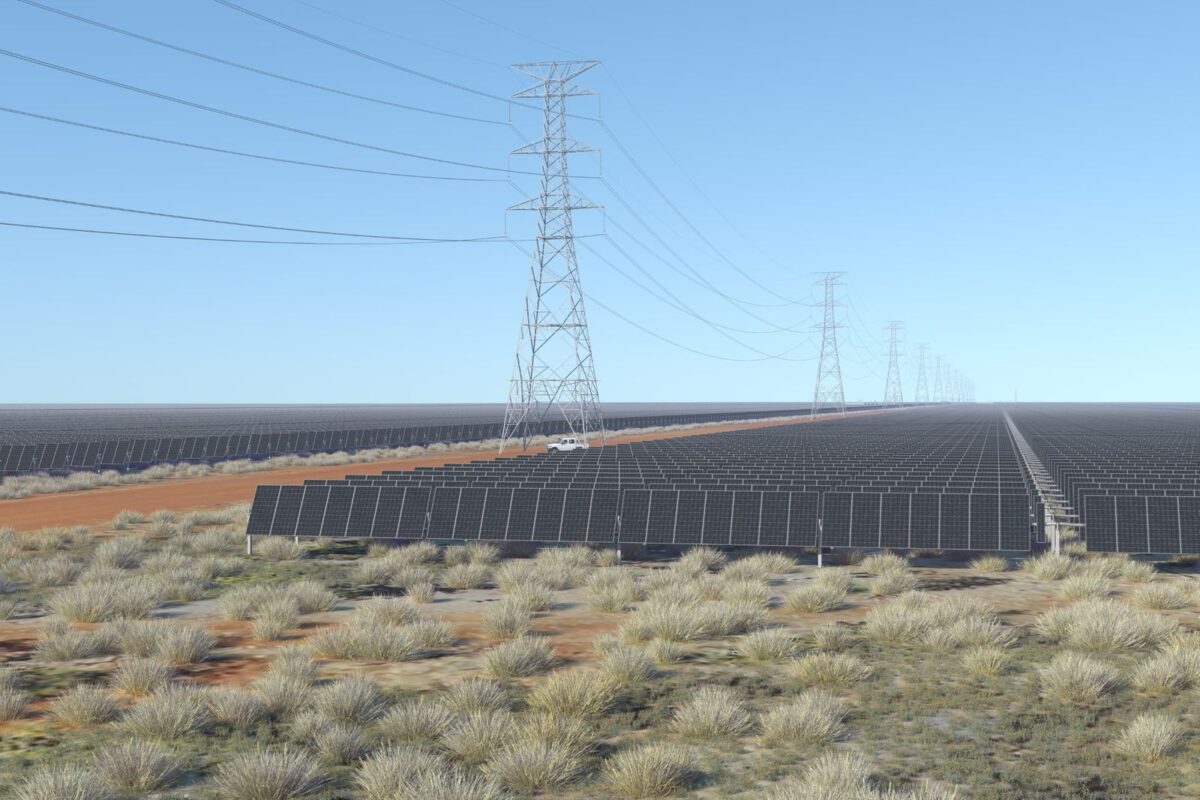Essentially, Redflow’s Energy Pod Z module is an enclosure containing 16 of its 10 kW zinc-bromine flow batteries plus the power conversion technology to deliver the stored electricity at high-voltages.
“We think that’s probably the start of the building blocks that we need to go and target larger megawatt hour systems,” Redflow’s Managing Director and CEO, Tim Harris, told pv magazine Australia.
“It allows us to step into that higher voltage space that’s going to be necessary for large-scale industrial and commercial and potential utility elements, so that’s a major development for us.”
Redflow’s batteries are typically 48-volts, which has proven limiting for the company – especially for large-scale installations. The hope is that its Energy Pod will solve this. It integrates technology from a European power electronics company which is able to turn low-voltages to between 800 to 900 volts.
Each of the Energy Pod Z modules contains 160 kWh of energy storage and is able to push and pull energy at 60 kW, according to Redflow’s System Integration Architect, Simon Hackett. It was Hackett’s job to integrate the European technology with its Redflow battery pods, which he described as working “really well.”
“The point of doing that is when you want to deploy many megawatts of power when you don’t just have a few batteries – you want hundreds of batteries, ultimately thousands of batteries – you need to do that at high voltage,” Hackett said.
“This is the key for us. Once you have this thing in the field, you can essentially have as many as you like… once you run this sort of advanced high-voltage system, the sky’s the limit.”
The Energy Pod Z modules stem from Redflow’s $1.5 million deal to supply 192 zinc-bromine flow batteries to waste conversion company, Anaergia, at its Rialto Bioenergy Facility in southern California. Redflow designed to the pod to meet Anaergia’s requirement of 2 MWh of energy storage – which has in turn acted as a springboard for the company to launch into what Hackett calls its “high-voltage, high-capacity, grid-scale future.”
This content is protected by copyright and may not be reused. If you want to cooperate with us and would like to reuse some of our content, please contact: editors@pv-magazine.com.









1 comment
By submitting this form you agree to pv magazine using your data for the purposes of publishing your comment.
Your personal data will only be disclosed or otherwise transmitted to third parties for the purposes of spam filtering or if this is necessary for technical maintenance of the website. Any other transfer to third parties will not take place unless this is justified on the basis of applicable data protection regulations or if pv magazine is legally obliged to do so.
You may revoke this consent at any time with effect for the future, in which case your personal data will be deleted immediately. Otherwise, your data will be deleted if pv magazine has processed your request or the purpose of data storage is fulfilled.
Further information on data privacy can be found in our Data Protection Policy.